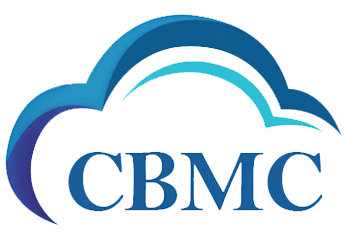
For small and medium-sized enterprises (SMEs) in Pakistan, making strategic decisions about resource allocation is crucial for survival and growth. One such critical decision revolves around managing their financial health: should they handle their accounting in-house or outsource it to external experts? This blog post delves into a comparative analysis of both approaches, specifically considering the cost, efficiency, and scalability aspects relevant to Pakistani SMEs.

Understanding the Options:
In-House Accounting: This is the process of employing and sustaining a full-time accounting staff in-house within the company. This team is delegated with all aspects of finance, from recording regular transactions to generating financial reports and dealing with tax compliance.
Outsourced Accounting: This entails hiring an outside accounting firm or professional to handle some or all of the accounting duties of the company. The level of services can vary from simple bookkeeping to full-scale financial management and consulting.
Cost Considerations:
For Pakistani SMEs, cost is often a primary concern. Let’s break down the cost implications of each approach:
In-House Accounting:
Direct costs are salaries, benefits (such as Employees’ Old-Age Benefits Institution – EOBI and possible health insurance), office space, software subscriptions, and continuing education. Indirect costs may consist of time devoted to recruitment, supervision, and possible mistakes due to the absence of specialized expertise. For a small business, even a single full-time accountant can be a large share of their overhead.
Outsourced Accounting:
The expense structure for outsourcing is generally a service fee, which may be fixed (for a specified amount of work) or variable (on a volume of transactions or time basis). Although there is a recurring cost, SMEs do not have to incur the expense of recruiting and keeping a full-time staff. This can be especially beneficial for startups or companies with varying workloads. Furthermore, outsourcing allows for access to skills that may be prohibitive to bring on internally.
Efficiency Analysis:
Efficiency in accounting directly impacts the timely availability of financial information for decision-making.
- In-House Accounting: Efficiency can vary greatly depending on the skills and experience of the in-house team. A dedicated team can develop a deep understanding of the business operations, potentially leading to tailored financial reporting. However, reliance on a small team can create bottlenecks, especially during peak periods like tax season. There’s also the risk of errors if the team lacks specialized knowledge in certain areas.
- Outsourced Accounting: Outsourcing firms often have streamlined processes, utilize advanced accounting software, and possess specialized expertise across various industries and regulatory requirements in Pakistan (like compliance with the Federal Board of Revenue – FBR). This can lead to more accurate and timely financial reporting, freeing up the SME owners and their core team to focus on revenue-generating activities. The scalability of outsourced services also contributes to efficiency, as resources can be adjusted based on the business’s needs.

Scalability for Growth:
As Pakistani SMEs grow, their accounting needs will evolve in complexity and volume.
- In-House Accounting: Scaling an in-house accounting department requires hiring more personnel, investing in infrastructure, and potentially restructuring the team. This can be a time-consuming and costly process, and finding qualified accounting professionals, especially in smaller cities, can be challenging.
- Outsourced Accounting: Outsourcing offers inherent scalability. As the business grows, the SME can easily adjust the scope of services with the outsourcing firm. This flexibility allows SMEs to access the right level of expertise and resources when they need them, without the burden of permanent hires and infrastructure investments. For instance, a growing SME might initially outsource bookkeeping and tax filing but later add services like financial analysis and forecasting as their needs become more sophisticated.
Making the Right Decision for Your Pakistani SME:
No single-size-fits-all solution. The optimal solution for a Pakistani SME is based on its individual situation, such as size, complexity, budget, and growth prospects.
Consider In-House Accounting if:
The company is large enough to cover the expense of a professional and experienced accounting department.
The needs of accounting are extremely specialized and need intimate internal expertise.
There is a high preference for direct management and tight integration of the accounting function in the operations of the company.
Consider Outsourced Accounting if:
The company is a small or budding SME with limited funds. Having access to specialized competence and state-of-the-art accounting tools is desired without the burden of maintaining a full-time staff.
Scaling and adaptability to evolve with shifting business demands are paramount.
The emphasis is placed on fundamental business activities, and administrative activities such as accounting are classified as non-core.
Conclusion:
For many Pakistani SMEs, especially in the early stages of growth, outsourcing accounting can offer a compelling solution. It can provide access to professional expertise, improve efficiency, and offer scalability at a potentially lower overall cost compared to maintaining a fully in-house department. However, thorough due diligence in selecting a reputable and experienced outsourcing partner familiar with local regulations and business practices is essential. Ultimately, the decision should be based on a careful evaluation of the SME’s unique needs and a clear understanding of the costs and benefits associated with each approach.
To know more in detail, visit our official website: https://www.cbmc.pk/
